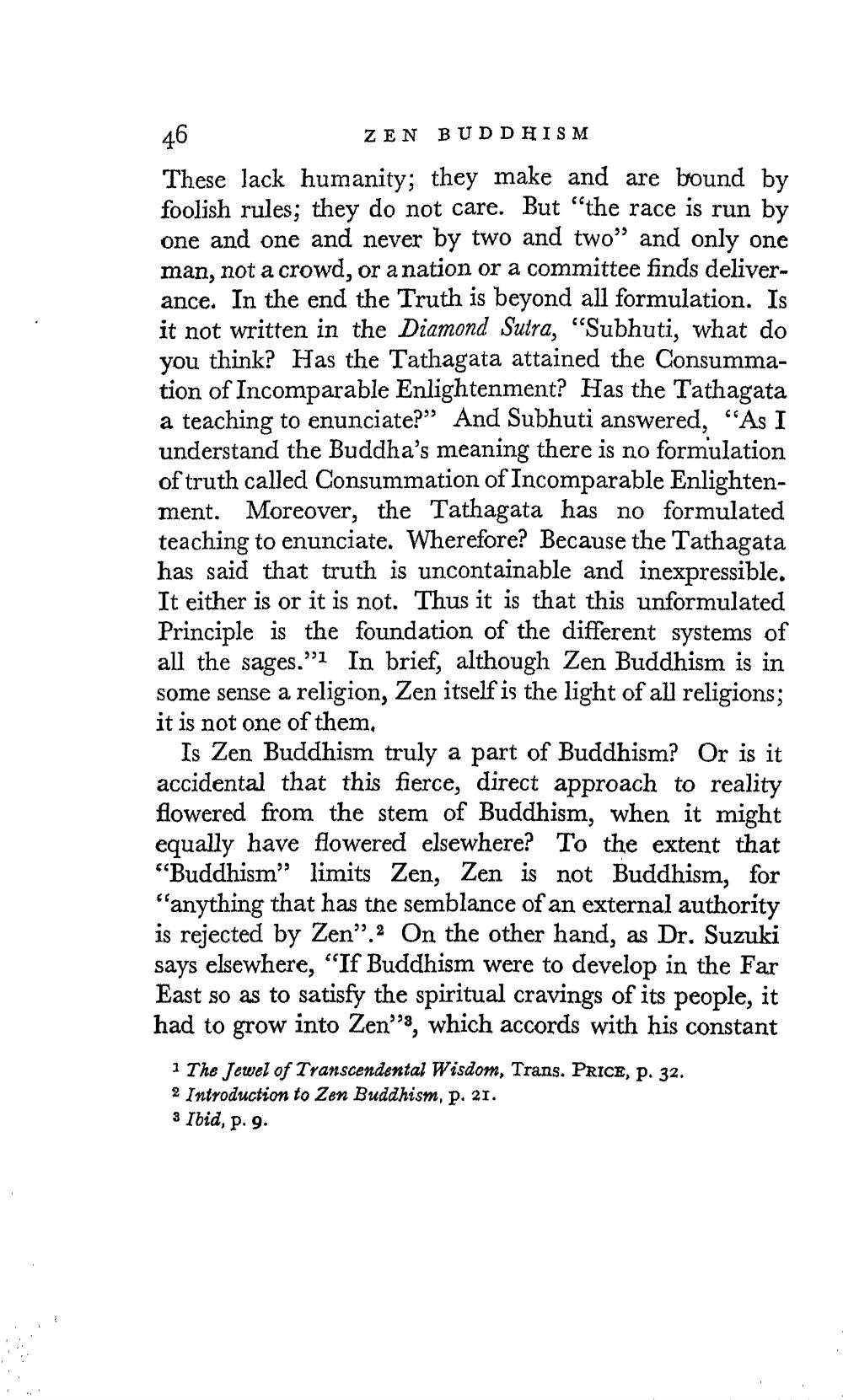________________
ZEN BUDDHISM
46
These lack humanity; they make and are bound by foolish rules; they do not care. But "the race is run by one and one and never by two and two” and only one man, not a crowd, or a nation or a committee finds deliverance. In the end the Truth is beyond all formulation. Is it not written in the Diamond Sutra, “Subhuti, what do you think? Has the Tathagata attained the Consummation of Incomparable Enlightenment? Has the Tathagata a teaching to enunciate?” And Subhuti answered, “As I understand the Buddha's meaning there is no formulation of truth called Consummation of Incomparable Enlightenment. Moreover, the Tathagata has no formulated teaching to enunciate. Wherefore? Because the Tathagata has said that truth is uncontainable and inexpressible. It either is or it is not. Thus it is that this unformulated Principle is the foundation of the different systems of all the sages."1 In brief, although Zen Buddhism is in some sense a religion, Zen itself is the light of all religions; it is not one of them,
Is Zen Buddhism truly a part of Buddhism? Or is it accidental that this fierce, direct approach to reality flowered from the stem of Buddhism, when it might equally have flowered elsewhere? To the extent that “Buddhism" limits Zen, Zen is not Buddhism, for "anything that has the semblance of an external authority is rejected by Zen”.2 On the other hand, as Dr. Suzuki says elsewhere, "If Buddhism were to develop in the Far East so as to satisfy the spiritual cravings of its people, it had to grow into Zeno's, which accords with his constant
1 The Jewel of Transcendental Wisdom, Trans. PRICE, P. 32. 2 Introduction to Zen Buddhism, p. 21. 3 Ibid, p. 9.




